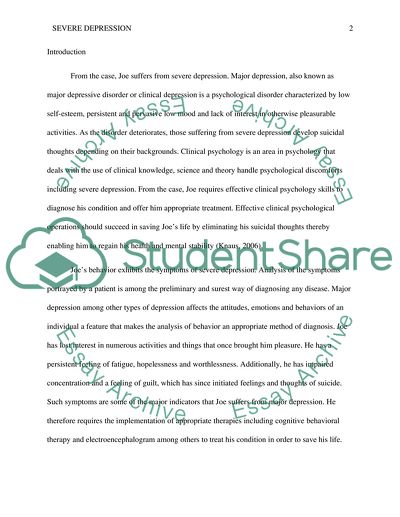Cite this document
(Clinical Psychology: Severe Depression Case Study, n.d.)
Clinical Psychology: Severe Depression Case Study. Retrieved from https://studentshare.org/psychology/1699446-case-study-1-clinical-psychology-severe-depression
Clinical Psychology: Severe Depression Case Study. Retrieved from https://studentshare.org/psychology/1699446-case-study-1-clinical-psychology-severe-depression
(Clinical Psychology: Severe Depression Case Study)
Clinical Psychology: Severe Depression Case Study. https://studentshare.org/psychology/1699446-case-study-1-clinical-psychology-severe-depression.
Clinical Psychology: Severe Depression Case Study. https://studentshare.org/psychology/1699446-case-study-1-clinical-psychology-severe-depression.
“Clinical Psychology: Severe Depression Case Study”, n.d. https://studentshare.org/psychology/1699446-case-study-1-clinical-psychology-severe-depression.


